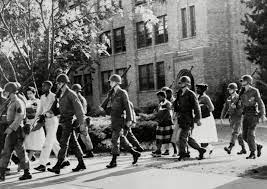On October 29, 1967, a groundbreaking and revolutionary musical opened on Broadway that would forever change the landscape of American theater – "Hair: The American Tribal Love-Rock Musical." With its countercultural themes, rock music, and provocative content, "Hair" challenged traditional norms and became a symbol of the social and cultural revolution of the 1960s.
"Hair" was the brainchild of James Rado and Gerome Ragni, who wrote the book and lyrics, with music by Galt MacDermot. The musical tells the story of a group of politically active, free-spirited young people known as the "tribe" who are navigating the turbulent times of the Vietnam War, civil rights movement, and sexual revolution.
What set "Hair" apart from other musicals of its time was its unapologetic embrace of countercultural values and its willingness to address controversial topics such as drugs, sexuality, and anti-war sentiment. The show featured an interracial cast, which was rare for Broadway at the time, and incorporated rock music, psychedelic visuals, and experimental staging techniques.
The opening night of "Hair" on October 29, 1967, was met with both praise and controversy. The show's themes of rebellion, nudity, and drug use pushed the boundaries of what was considered acceptable in mainstream theater. Audiences were divided, with some embracing the show's message of peace, love, and freedom, while others found it shocking and immoral.
"Hair" quickly became a cultural phenomenon, attracting a dedicated following of young people who identified with its anti-establishment message. The show's anthems, such as "Aquarius" and "Let the Sunshine In," became rallying cries for the counterculture movement and captured the spirit of the era.
Beyond its cultural impact, "Hair" also had a lasting influence on the theater industry. It introduced a new style of musical theater that incorporated rock music and contemporary social commentary, paving the way for future productions that would challenge traditional theatrical conventions.
The success of "Hair" led to numerous productions around the world and a film adaptation in 1979. The musical's impact extended beyond the stage, as it inspired a generation of artists, musicians, and activists to question authority, challenge societal norms, and fight for social change.
In retrospect, "Hair" is regarded as a landmark production that captured the spirit of the 1960s counterculture movement. It reflected the changing attitudes and values of a generation that sought to break free from the constraints of the past and create a more inclusive and progressive society.
Today, "Hair" remains relevant as a testament to the power of theater to provoke thought, challenge conventions, and inspire social change. Its themes of love, peace, and acceptance continue to resonate, reminding us of the importance of embracing diversity and fighting for justice






